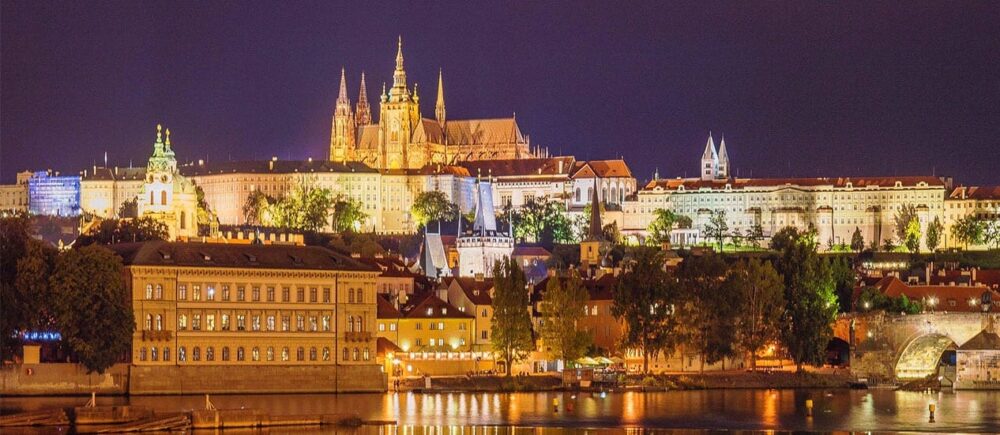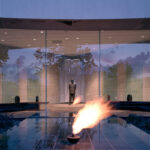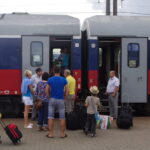An Impulsive Visit to Prague.
For several years—this was back in the early 80s—my little advertising agency handled the tourism promotion for American Samoa. One day, included in the morning mail was a handwritten letter from Czechoslovakia. It was from a young man who said his hobby was collecting “view cards from Polynesia” and he asked if we would be so kind as to send him one or two.
At that time, my wife and I had just begun planning a trip to Europe and we had already planned a visit to Hungary. “Wouldn’t it be fun,” I said, “if we added a few days to our itinerary, and spent two or three days in Prague after leaving Budapest. And we’ll bring this guy a whole boxfull of picture postcards from all over the Pacific!”
All three of us—our daughter was about seven at the time and would be coming with us—thought it was a great idea and we so informed Jan Prochàzka, the view card collector, by return mail.

Three months later, we arrived in Prague by train from Budapest. Jan Prochàzka, it turned out, was in his mid-30s and was there at the railway station to greet us when we arrived. His English was marginal, but adequate, and he said we were invited to have dinner with him and his parents in their home that evening. We accepted, of course.
That night was an extraordinary experience, with the six of us crowded around a small table in the tiny kitchen of their tiny apartment. Jan’s mother (I don’t remember her name) had been born in Cleveland, Ohio, and she spoke flawless English. As a teenager in the summer of 1939, she had returned to Prague to visit relatives and was trapped when World War 2 broke out.
Jan’s father, Mirek, also spoke excellent English, though with a pronounced accent. He was very well educated—they all were—and as we were taking our leave after dinner and heading back to our hotel, Mirek said he would like to take us on a walking tour of Prague the next day.
Of course we agreed and the following day was a memorable experience. Prague is a glorious city, in large part because it is the only major city in Europe that was never shelled or bombed during World War 2.
Over lunch the next day, Mirek told us that he had been sent to Germany during Word War 2 as a forced laborer. It was not, he said quietly, “a day at the beach.”
“But,” he said, “I am embarrassed to say we were not very good workers. We were very slow and we made a lot mistakes.”
And he winked.




What a wonderful experience.